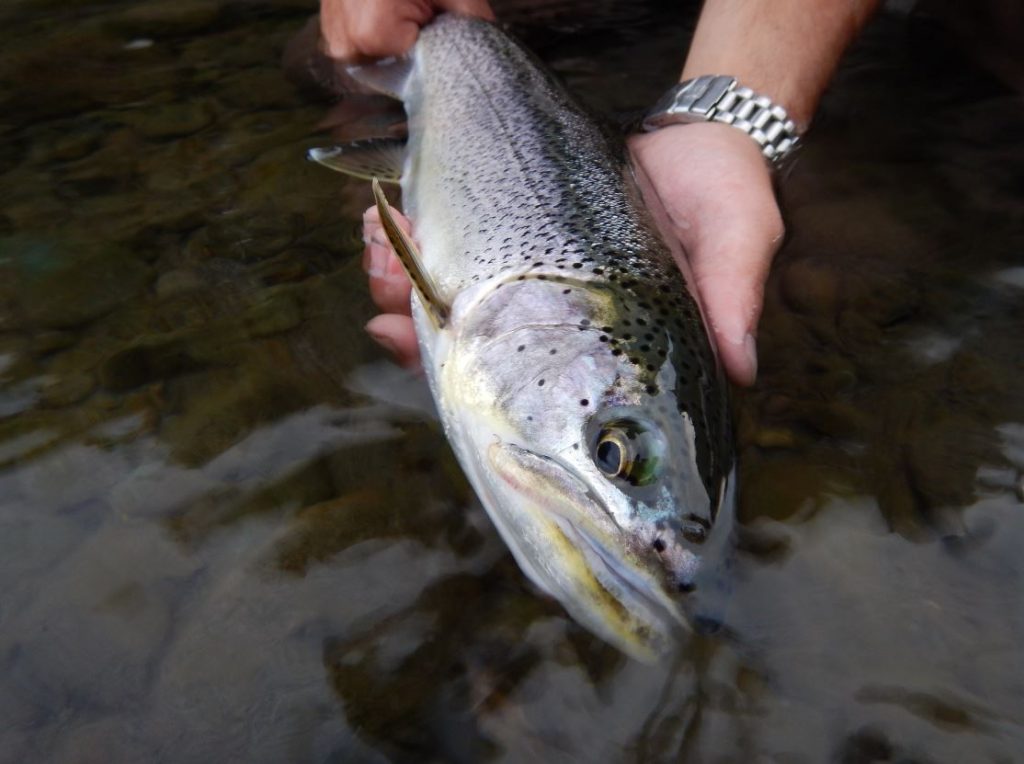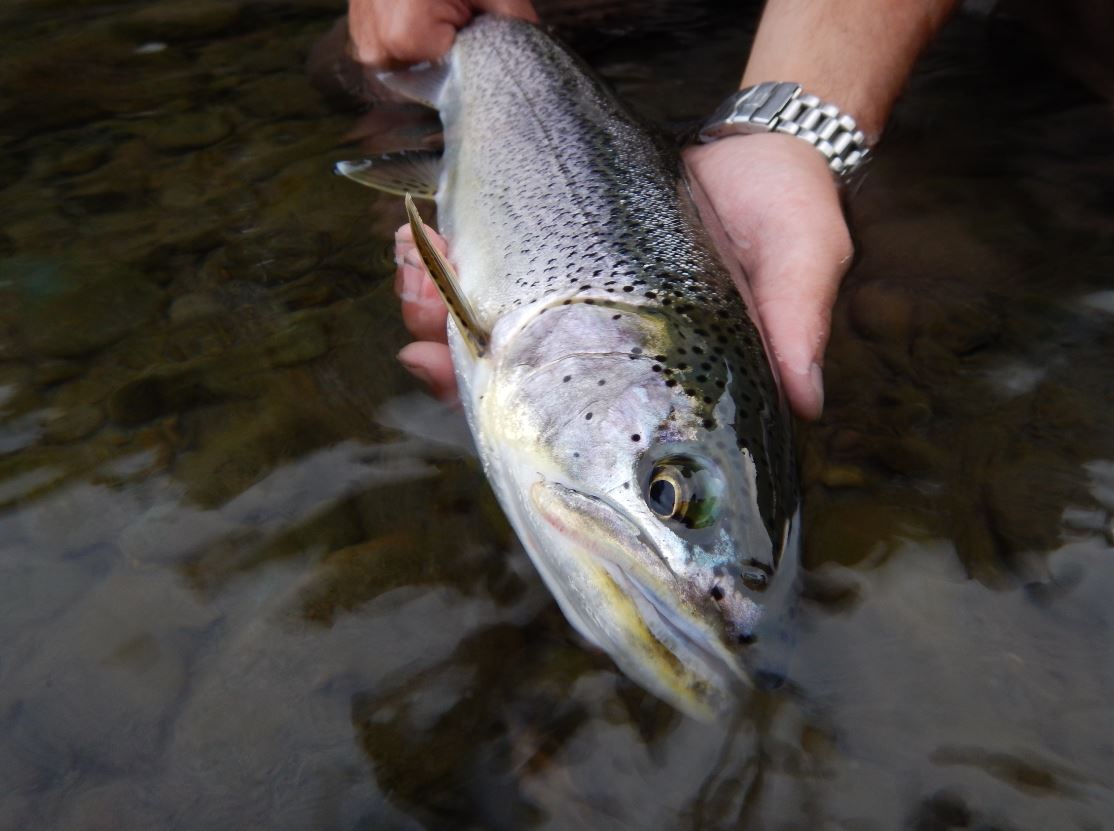THE FOLLOWING IS A PRESS RELEASE FROM THE WASHINGTON DEPARTMENT OF FISH AND WILDLIFE
Starting this month, some Hood Canal volunteer anglers fishing aboard guide boats and along the shore will be reeling in more than just fish – they’ll also contribute to a year-long research project led by the Hood Canal Salmon Enhancement Group (HCSEG), Coastal Cutthroat Coalition (CCC) and Washington Department of Fish and Wildlife (WDFW) to inform coastal cutthroat migration and abundance. With funding from the National Oceanic and Atmospheric Administration (NOAA), the effort joins ongoing community-science projects in Washington studying sea-run cutthroat trout survival and life history.

“HCSEG staff are excited to be a part of this project and continue to contribute to the groundbreaking coastal cutthroat trout research gathered by Coastal Cutthroat Coalition and Washington Department of Fish and Wildlife in Puget Sound over the last few years,” said Clayton David, HCSEG salmon and steelhead biologist. “We see an astounding opportunity to expand the knowledge surrounding coastal cutthroat trout life histories, productivity, and abundance with this project to inform future management decisions.”

Throughout the year, WDFW and HCSEG staff will sample cutthroat caught and released by volunteer recreational fisherman for age, genetics, health and condition at pre-determined sample sites throughout Hood Canal to identify biological and environmental indicators that support healthy and abundant cutthroat populations. As part of the final phase of the project, expected to conclude in 2022, HCSEG will coordinate volunteer habitat restoration events with opportunities to plant more than 2,000 trees at areas the data indicates would provide the greatest benefit to cutthroat populations in Hood Canal.
“This project is unique in the fact that the work will be accomplished not only by trained professionals but will involve the angling public and the fishing guide community with the guidance of fish biologists,” said Greg Shimek, Coastal Cutthroat Coalition executive director. “The Coastal Cutthroat Coalition is proud to work alongside HCSEG, WDFW, and other partners to advance the knowledge around coastal cutthroat and their habitat.”
“It’s not that often that we’re able to engage anglers with such a clear window into the scientific work that fish biologists and researchers do every day,” said James Losee, fish program manager for WDFW’s coastal region. “We’re thrilled to have an opportunity to collaborate on this project alongside the recreational angling community to expand the understanding around coastal cutthroat trout.”
“Our team is excited to take part in such an important study of our amazing and unique local trout,” said Justin Waters, fly fishing guide. “Unraveling the mysteries of these fish is half the fun of fishing and supporting the work of fish managers and conservationists provides a unique opportunity to do just that.”
This project is funded by NOAA through its Fish Habitat Partnership grant program, which aims to enhance collaboration with the recreational fishing community and support improved habitat, with additional support from the Coastal Cutthroat Coalition and Western Native Trout Initiative. Anglers participating include those from the Bainbridge Island Fly Fishers, Kitsap-Olympic Peninsula Chapter Trout Unlimited, Puget Sound Flyfishers, and South Sound Fly Fishers.
Those interested in getting involved in fish conservation are encouraged to contact their local fishing club or salmon enhancement group for volunteer opportunities. Future restoration events for this project will be available on HCSEG’s website.
Anglers are reminded to continue to consult WDFW’s 2020-21 Sport Fishing Rules pamphlet and emergency rules webpage for the latest regulations pertaining to coastal cutthroat.
WDFW is the state agency tasked with preserving, protecting and perpetuating fish, wildlife and ecosystems, while providing sustainable fishing, hunting and other outdoor recreation opportunities.
The Hood Canal Salmon Enhancement Group strives to deepen the connection between land, people, and salmon through restoration, education, and research.
The Coastal Cutthroat Coalition is dedicated to the science and management of coastal cutthroat trout.




